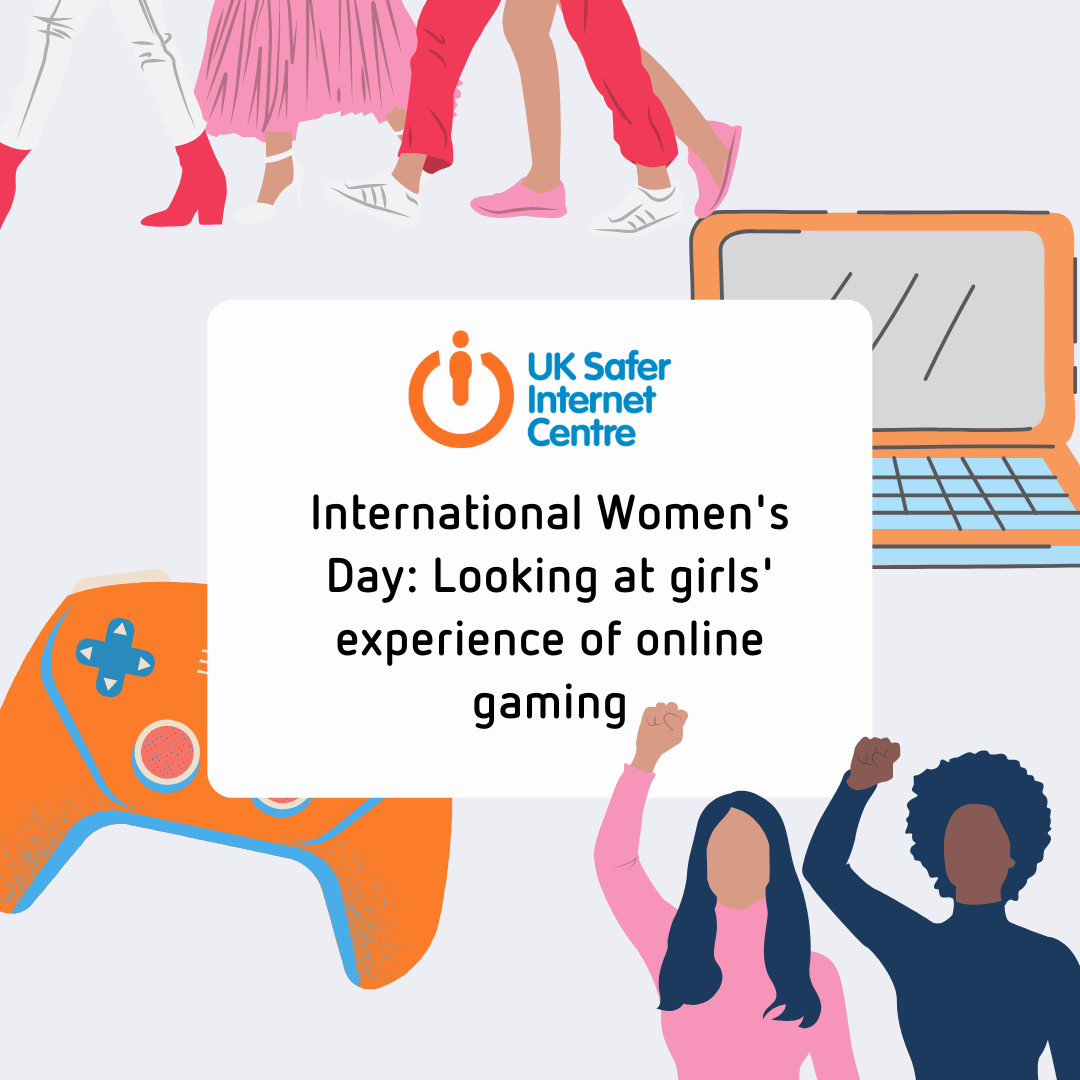
International Women’s Day – Looking at girls’ experience of online gaming
March 8th marks the annual celebration of International Women’s Day. The day celebrates women’s achievement, raises awareness against bias, and takes action for equality.
This year’s official hashtag is #BreaktheBias – be sure to engage with the conversation on social media, and upload this year’s official selfie pose.
If you head to the International Women’s Day homepage, you can take inspiration from the various missions undertaken by women in the last year, as well as explore the theme and take a look at all the various events going on.
As the co-ordinator for Safer Internet Day in the UK, we wanted to shed light on our research into the relationship between young women and gaming, as this year’s theme was:

Findings from the research for Safer Internet Day 2022 shows the ways girls engage in online gaming, especially over the COVID-19 pandemic, and how it has impacted their mental health.
How parents and carers can support young people
But firstly, let’s talk about parents and carers. Women we spoke to found it less difficult to start conversations with their child (regardless of gender) about their online life; 26% of women said they found it difficult to instigate these conversations, against 43% of men.
However, feedback from parents and young people demonstrates that there is still work to be done to support all families to have conversations at home that support safe and enjoyable internet use and online gaming.
We feel that it is something to be celebrated on International Women’s Day that so many mothers and female carers do not find talking to their child about their online lives a challenge. A vital part of a safer internet is established when parents and carers engage with them about life online.
Girls’ experience of online gaming
When looking at the research into young people, we found that most girls (54%) say that they now play more online games than ever before, whilst 60% of girls say that playing games online was an important part of their life in 2021.
With an upheaval of structure to the lives of young people because of the COVID-19 pandemic, it is so encouraging to see that most girls are actively engaging in online games.
Escapism can be a fantastic coping mechanism for people to experience all types of change; it’s also just a pure and simple way to release those all-important endorphins.
This is why we are pleased to report that most girls (56%) say that playing games changes their mood positively, and 67% say that it has helped them to keep in contact with their friends.
It’s worth mentioning that 63% of girls say that playing games online has allowed them to develop new skills, such as determination and problem solving; a further 48% of girls say that playing games online has allowed them to learn about other cultures and interact with people all over the world.
We hope that some of these statistics go a long way in dispelling stigmas surrounding gaming, and that more and more girls across the UK pick up that controller and play.
Report Harmful Content
We’d like to remind any young female gamer who experiences any harmful online content, to make full use of reporting features and to reach out to the Report Harmful Content platform for further advice and support.
Young people share their wishes in the Young People’s Charter
We have produced a Young People’s Charter from speaking to primary and secondary age children in focus groups, consulting Childnet Digital Leaders and Digital Champions, surveying young people, and reviewing the findings from our latest research.
This charter of five key points comes directly from the young people we spoke to. If these nuances are addressed by key online stakeholders and the UK Government, then we can expect to see a rise in all young people playing online games, but more importantly a better reap of positive impact because of online gaming.